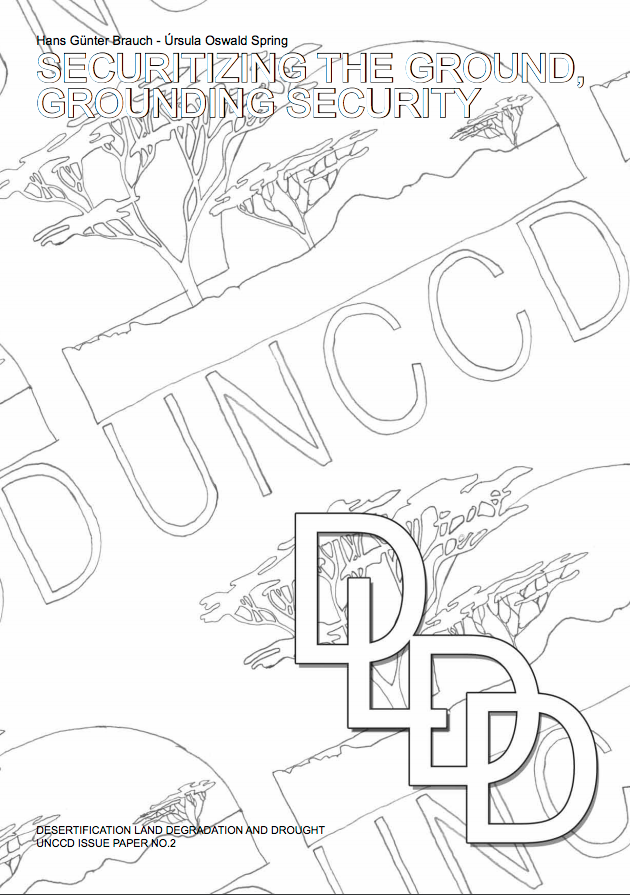Resource information
In the not so long history of humankind, our ancestors too often fought for land and water. Those days have returned.
During the last decades, the international community has realized that the continuous and intensive degradation of the environment and related loss of ecosystem services can have major implications for public security at the national level, resulting in a threat to international stability. Global environmental changes have further upset fragile ecological balances imposing a necessary re-conceptualization of public security, including the awareness of increasing threats from and to the global environment.
In this framework, major environmental threats such as desertification, land degradation and drought (DLDD) under scenarios of climate change represent considerable disruptive factors with a direct negative impact on societies, their economies and public security at all levels. The severity of these phenomena and their complex interactions are challenging the viability and sustainability of the development of all affected countries and call for a responsive policy paradigm for environmental security. Within this response DLDD is clearly a growing global threat that requires global coordinated actions from the international community.
The present study “Securitizing the Ground – Grounding Security” brings the debate forward in proposing the paradigm of soil security in the context of the challenges ahead of us and highlights the unique contribution that the UNCCD can bring to the international community in that regard.
The UNCCD process indeed must exploit its comparative advantage as an integrative platform of intervention to address the challenges of environmental stress, poverty reduction and conflict prevention. The security-environment interlinkages can be better assessed under its 10-year strategic plan and framework, which were adopted at COP 8 in Madrid in 2007 to enhance the implementation of the Convention.
The Strategy provides a unique opportunity to address some of the key global challenges, to capitalize on UNCCD’s strengths, to seize opportunities provided by the new policy and financing environment, and to create a new, revitalized common ground for all UNCCD stakeholders. It highlights the importance of forging a coalition to combat DLDD in the present context of climate change. This will deliver benefits at all levels and contribute to reliable access to food and water, a sustainable livelihood and the protection of biodiversity.
I sincerely hope that the outcomes of this study, combined with the ongoing work undertaken by the different actors in the context of security and land degradation will help the emergence of a global political coalition that will go beyond traditional conceptions and address together security, sustainable environmental development and poverty alleviation interests in a consensual framework to efficiently contribute to world stability and prosperity.
Luc Gnacadja
Executive Secretary of the UNCCD


